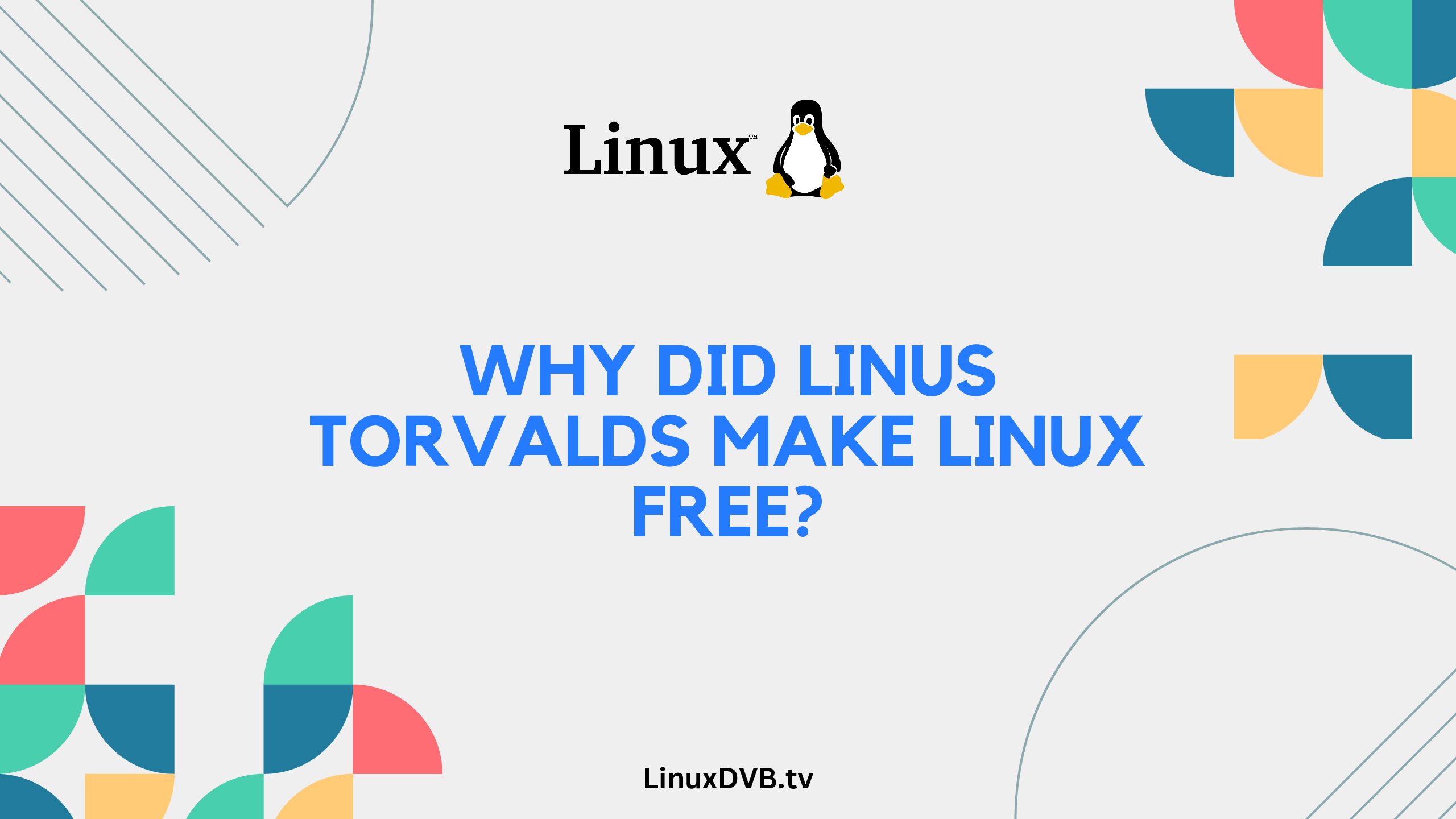Introduction
In the world of technology, few decisions have had the monumental impact that Linus Torvalds’ choice to make Linux free did. This article delves into the captivating journey of why Linus Torvalds made Linux free and explores the far-reaching consequences of his visionary decision. From fostering collaboration to changing the software landscape, let’s unravel the story behind one of the most significant revolutions in the tech realm.
Table of Contents
Why Did Linus Torvalds Make Linux Free?
Linux, an open-source operating system kernel, has become a linchpin of modern computing. Linus Torvalds’ motivations behind making Linux free were multi-faceted:
Community Empowerment
Linus Torvalds envisioned a community-driven software development model where collaboration and innovation thrived. By making Linux free, he democratized access to the operating system’s source code, enabling programmers worldwide to contribute, modify, and distribute it. This empowerment fostered an environment where ideas converged and flourished, leading to rapid advancements.
Fueling Innovation
In the early days, proprietary software dominated the landscape, often hindering innovation due to restricted access. Linus recognized that by freeing Linux’s source code, he could unleash a wave of creativity. Developers could tailor the operating system to their needs, leading to diverse applications across industries and sparking groundbreaking innovations.
Spreading Knowledge
Linus Torvalds’ decision aligned with the philosophy of knowledge-sharing. By making Linux open-source, he propagated the idea that information should be freely available and accessible to all. This approach not only accelerated learning and skill development but also laid the foundation for future generations of programmers to build upon.
Breaking Barriers
Linus Torvalds’ journey was shaped by his early struggles with proprietary systems. By making Linux free, he aimed to break down barriers to entry in the software world. This decision democratized software access, enabling anyone with a computer to explore, learn, and experiment without financial constraints.
The Impact of Linus Torvalds’ Decision
Linus Torvalds’ choice to make Linux free reverberated across the tech landscape:
Open Source Movement
Torvalds unwittingly ignited the open-source movement. The success of Linux demonstrated the power of collaborative development, inspiring the creation of countless open-source projects. This shift transformed the way software was created, shared, and improved.
Diversification of Operating Systems
Linux’s open nature led to a proliferation of Linux-based operating systems, each tailored to specific needs. From servers to smartphones and embedded devices, the adaptability of Linux fueled its adoption across diverse platforms.
Corporate Involvement
While Linux began as a grassroots effort, its popularity attracted corporate attention. Tech giants and organizations recognized the potential of Linux and started investing in its development. This synergy between individual contributors and corporate support contributed to Linux’s rapid growth and refinement.
Software Evolution
The open-source model enabled swift iterations and improvements. Bugs were identified and fixed more efficiently, leading to stable and secure software. This evolution set a new standard for software development, influencing even proprietary software companies to adopt collaborative practices.
FAQs
Is Linux Really Free to Use?
Yes, Linux is indeed free to use. The source code is available for anyone to access, modify, and distribute under open-source licenses.
Did Linus Torvalds Profit from Making Linux Free?
Linus Torvalds’ primary motivation was not financial gain. His goal was to create a better alternative to existing operating systems and promote collaborative development.
What Is the Role of the Linux Foundation?
The Linux Foundation serves as a steward for the Linux project, fostering collaboration among developers, maintaining the kernel’s integrity, and promoting its adoption worldwide.
Can I Contribute to Linux Development?
Absolutely! Linux development encourages contributions from programmers of all skill levels. You can submit code, report bugs, and participate in discussions to help improve the system.
How Has Linux Impacted the Business World?
Linux’s reliability, flexibility, and cost-effectiveness have made it a preferred choice for businesses. It powers servers, supercomputers, and even Android smartphones, driving efficiency and innovation.
What Lies Ahead for Linux?
The future of Linux is promising. As technology evolves, Linux continues to adapt, powering new devices, technologies, and applications while maintaining its core principles of openness and collaboration.
What OS did Linus Torvalds create?
He created the Linux operating system.
Why did Linus Torvalds make Linux free?
To encourage collaboration and widespread distribution.
How did Linus create Linux?
He developed it by writing the kernel’s code and collaborating with others.
Who formed Linux?
Linus Torvalds initiated the development of Linux.
Did Linus Torvalds invent UNIX?
No, Linus Torvalds did not invent UNIX.
Why did Linus invent Linux?
He wanted to create a free and open-source alternative to existing operating systems.
Why did Linus create Linux?
Linus created Linux to have a freely accessible operating system for all.
Conclusion
Linus Torvalds’ decision to make Linux free was a revolutionary step that transformed the software industry. By empowering communities, fueling innovation, and promoting knowledge-sharing, he laid the groundwork for a new era of open-source development. From its humble beginnings, Linux has become a symbol of collaboration, adaptability, and progress. As we move forward, let’s remember the impact of this decision and the remarkable journey it set in motion.

